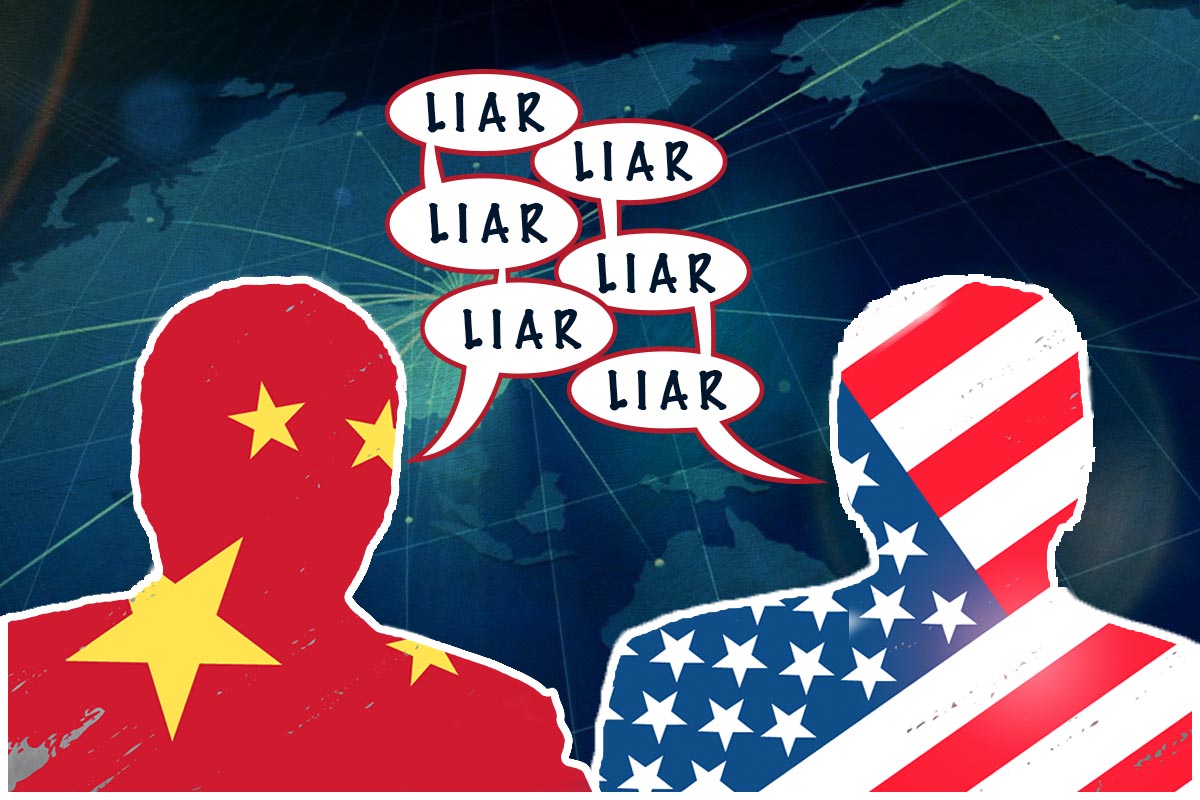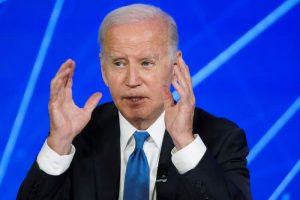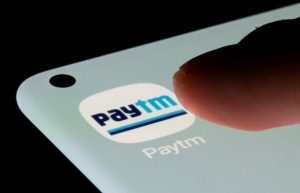Hua Chunying read from a prescripted communique. She appeared to relish the opportunity to clarify the position of China’s Ministry of Foreign Affairs when it came to the Covid-19 pandemic.
As an “official spokesperson,” she was outlining the views of the ruling Communist Party during a routine media briefing last week. The topic was again predictable.
“We have no intention to judge another country’s response to the pandemic. But while China set an example and bought precious time for the world with huge efforts and sacrifice . did a certain country make full use of the time to enhance preparedness?” Hua asked.
Obviously not, according to the next part of her prepared statement.
“Now, so many days have passed, and some in the [United States] still claim China should be held responsible for the Covid-19 [epidemic] in the US. Don’t they feel guilty or ashamed? They are trying to shift the biggest blame of the century to China and make it the biggest scapegoat. However, such an attempt is just impossible as the blame is too heavy to be shifted. Sorry, it won’t work,” Hua continued.
By now, she was in full voice.
“The pandemic is in some way like a magical mirror that exposes a person’s morality and character to the fullest extent. The virus knows no ideology, border or race. The destinies of all countries are closely intertwined . We don’t have the interest or the time to launch any despicable ‘disinformation campaign,'” Hua added.
More than 1.2 million people have been infected by this new coronavirus strain, which was “first reported in Wuhan on December 31,” the World Health Organisation confirmed.
PR disaster
Politically, this has been a public relations disaster for President Xi Jinping and the ruling Communist Party. Accusations of incompetence have been leveled against Beijing for its early response to the crisis, as well as claims of a “cover-up” by officials in Wuhan, the initial epicenter of the epidemic in Hubei province.
During the Lunar New Year period in late January, about five million people left the city before the lockdown order was announced to slow the spread of Covid-19. Numbers that were verified by Wuhan Mayor Zhou Xianwang, Chinese media revealed on January 26.
Yet not one person who left the cultural and economic heart of Hubei was tested for the virus. What followed was a scramble by Xi’s administration to quarantine 15 cities of more than 56 million people in surrounding regions.
By February, up to half of the nearly 1.4 billion population were caught up in some form of travel ban as factories and companies were shut down. Hotels, cinemas, restaurants and shops were also closed.
A month later, the Asia-Pacific region, Europe and North America were left reeling from the aftershocks of the pandemic. Economies were put into mothballs as nations started to isolate large pockets of their populations.
Before bringing the outbreak under control, China suffered 3,300 deaths. Medical workers have “suggested that the count” could be much “higher,” the New York Times reported on Friday. Radio Free Asia also disclosed in mid-February that “funeral homes in Wuhan” were “working 24/7 to cremate bodies.”
So far, the overall number of global infections has reached 1.27 million, while the death toll has spiraled to nearly 70,000. Recession looms across the planet.
“It is now clear that we have entered a recession as bad or worse than in 2009 [and it will be] quite deep. The human costs of the coronavirus pandemic are already immeasurable and all countries need to work together to protect people and limit the economic damage,” Kristalina Georgieva, the managing director of the International Monetary Fund, told a media briefing last month.
Changing the “narrative” has naturally become a priority for China and has involved a diet of drip-feed diatribes by the country’s heavily-censored state-owned media.
“Beijing will face great difficulty in promoting its narrative on the current crisis for a couple of different reasons. For one, it is based on a blatant lie, that China was somehow not responsible for the disaster that is now encompassing the whole world,” Rajesh Rajagopalan, a professor of international politics at Jawaharlal Nehru University in New Delhi, said.
“Hypocrisy and lying are expected of states but as the scholar John Mearsheimer points out, states don’t actually lie to each other as much as we think, which makes Beijing’s behavior stand out,” he wrote in a commentary for the Observer Research Foundation, an independent think tank based in India.
The Covid-19 calamity has also created a new form of Twitter diplomacy from Beijing, which is straight out of the playground playbook. Needless to say, Twitter is banned in China and blocked by the Great Firewall.
But it has not stopped Ministry of Foreign Affairs spokesman Zhao Lijian from peddling conspiracy theories that Covid-19 was unleashed on Wuhan by the United States military.
Again, this in-your-face mask rhetoric has triggered a generational storm in diplomatic circles.
“To counter others’ prejudices, we cannot simply criticize them and get defensive. We must put forth a true, three-dimensional, and comprehensive [portrait of] China to [the] international society,” Fu Ying, the former deputy minister of foreign affairs, said as quoted by the People’s Daily.
State-run media has also played a crucial role in a slightly harder version of soft power. Between stories of China shipping medical supplies to the rest of the world, English-language newspapers such as Global Times have launched an intensive propaganda campaign.
Headlines like “US, UK politicians can’t twist virus public opinion” are served up with lashings of bellicose and bile. The tabloid sister publication of the People’s Daily pointed out:
“The COVID-19 pandemic has exposed the weakness and idleness of some Western governments in handling an emergency. Some officials in the West tried to make China a scapegoat of their incompetence, demonstrating how shameless Western politicians can be.
“No official in the US or Britain or any other Western country has reportedly been held accountable and removed from their position due to gross neglect of duty that led to the dire outbreak in their countries. The lawmakers always have excuses for whatever they do.
“It is absurd to accuse China of a disinformation campaign or attempt to hold China accountable. It is [also] a daydream for some Western politicians to make China accountable and ask for compensation. There is no legal basis for it.”
What makes these government-inspired editorials amusing even to a domestic audience is the lack of sophistication compared to the taunt, street-style elegance of Western tabloids.
Just as bizarre is that the first cases of what has since become a viral pandemic were traced to a wet market in Wuhan. Indeed, seafood was not the only ‘catch of the day’ being sold. Snakes, raccoons, porcupines and deer were just some of the species crammed inside cages before the popular menagerie was closed down at the end of January.
Still, perhaps, Rajagopalan, of Jawaharlal Nehru University, has captured the mood of these dark days.
“China’s authoritarianism is a natural disadvantage in many ways, especially on its efforts to project soft power. If China’s propaganda effort is ham-fisted, it is partly the consequence of Beijing’s difficulty in understanding how a free media works and how best to shape the narrative,” he said.
“This is not something that can be reverse-engineered, and China cannot solve this problem simply by throwing money at it, or by changing the head of the propaganda department. That probably explains China’s miscalculated expectation that it will win brownie points by supplying pandemic aid, without at least accepting responsibility for creating the mess, to begin with,” Rajagopalan added.
Unfortunately, that is unlikely to appear in a Ministry of Foreign Affairs communique in the near, or distant, future.
























